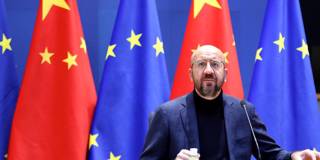Europe’s China Gambit
The new EU-China agreement underscores a fundamental question of the post-pandemic world order: How should strategic and economic relations between major powers with very different institutional and political arrangements be managed? Can democracies remain true to their values while engaging in trade and investment with China?

CAMBRIDGE – Just as 2020 was ending, the European Union and China announced the completion of a Comprehensive Agreement on Investment (CAI) between the two economic giants. This “will be the most ambitious agreement that China has ever concluded with a third country,” boasted the official announcement from the European Commission.